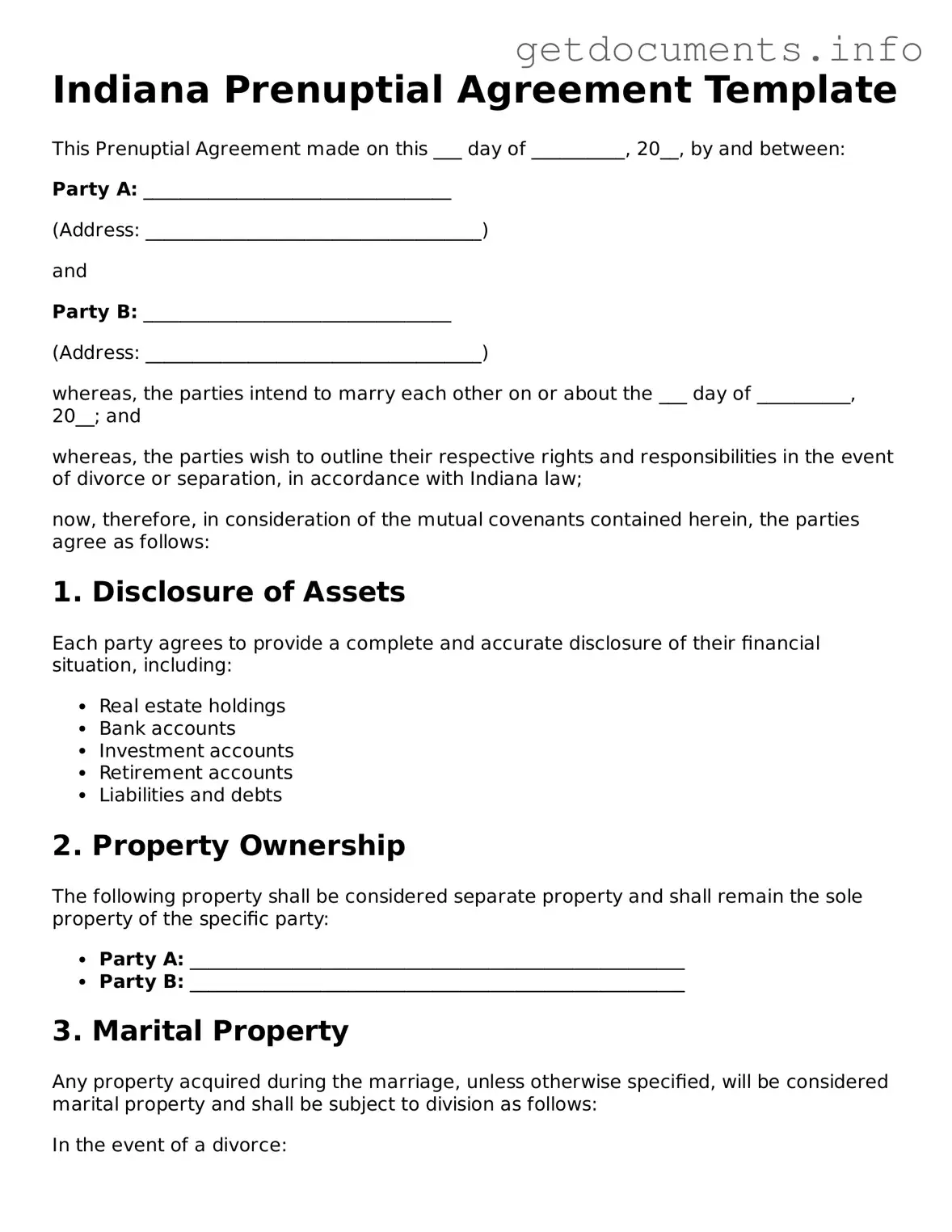Free Prenuptial Agreement Template for Indiana
A prenuptial agreement form in Indiana is a legal document that outlines the financial and personal arrangements between two parties before they marry. This agreement can help clarify asset division and responsibilities in the event of a divorce. To ensure your interests are protected, consider filling out the form by clicking the button below.
Access Prenuptial Agreement Editor

Free Prenuptial Agreement Template for Indiana
Access Prenuptial Agreement Editor
Got places to be? Complete the form fast
Fill out Prenuptial Agreement online and avoid printing or scanning.
Access Prenuptial Agreement Editor
or
⇩ PDF File
